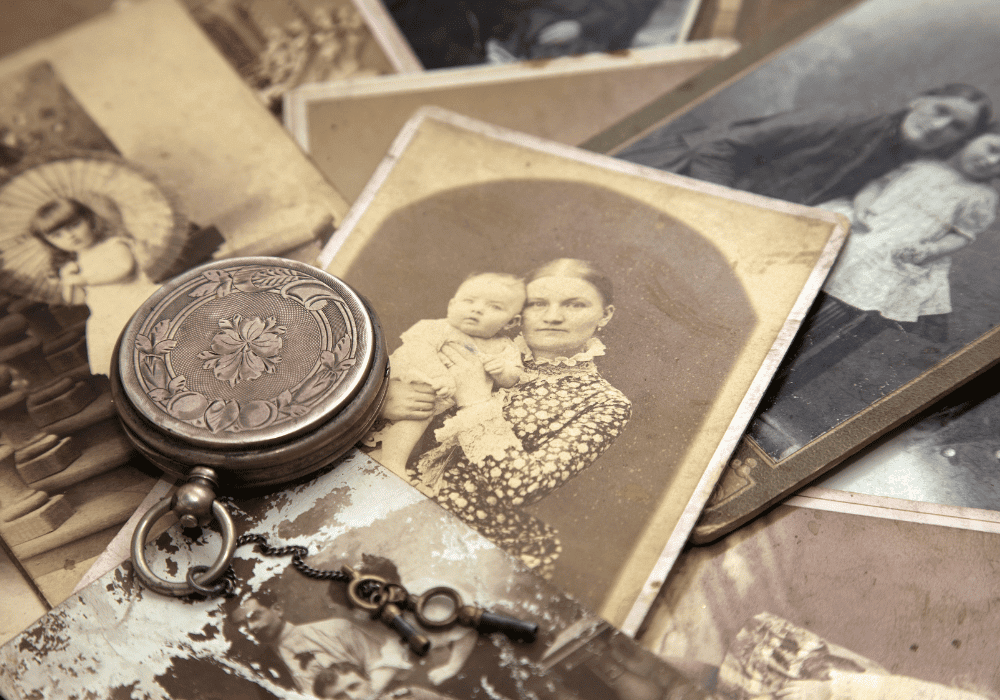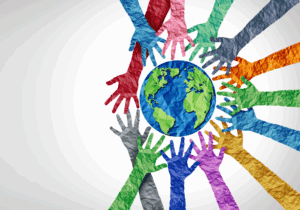Our lead trainer, Dr. Neil Hanon, recently joined host GV Freeman on the PsychedelicIQ podcast for an insightful deep dive into the evolving world of psychedelic therapy. In this hour-and-a-half-long conversation, Dr. Hanon shared his personal and professional journey, offering listeners a rare glimpse into the intersection of science, spirituality, and healing within the psychedelic space. The episode highlighted Dr. Hanon’s extensive experience as both a practitioner and a teacher, providing valuable context for anyone curious about Grof-inspired psychedelic practices and training.
Throughout the podcast, Dr. Hanon emphasized the essential balance between scientific rigor and spiritual exploration when using psychedelics to address grief and foster internal healing. He spoke candidly about the need to honour a person’s psyche during therapy, his own journey of reconnecting with ancestral roots through psychedelic work, and how that shaped his identity and path. Dr. Hanon also reflected on his calling to join Stanislav Grof, recounting some of Grof’s transformative experiences with holotropic breathwork and psychedelic therapy. Other key talking points included the critical role of integration in the facilitative process, safety and ethics in underground facilitation, and the mission of Grof Psychedelic Training Academy. To dive deeper into the discussion between Dr. Hanon and GV Freeman, watch the podcast episode below:
Ancestral connection is becoming an increasingly intriguing and relevant topic in the world of psychedelic therapy. More therapists are exploring how discovering one’s ancestors can help uncover hidden layers of personal identity, generational healing, and spiritual growth. This fusion of ancient wisdom and modern psychotherapy offers a pathway for clients to reconnect with their roots, resolve intergenerational trauma, and find deeper meaning.
This post will explore the psychological and spiritual foundations of ancestral connection, how psychedelics facilitate these experiences, and the ethical considerations vital to this work. If you’re a psychedelic therapist looking to expand the scope of your practice, we’ve included practical strategies to help you respectfully and thoughtfully incorporate ancestral connection into your sessions.
Understanding Ancestral Connection
The Psychological Basis
At its core, ancestral connection refers to the practice of exploring and aligning with the lives, stories, and lessons of those who came before us. Psychologically, it taps into the concept of intergenerational transmission, where emotions, traumas, and behaviours are unconsciously passed down through generations.
Research has shown that events from our ancestors’ lives, such as displacement, war, or communal rituals, can imprint on our DNA through a process known as epigenetics. When clients uncover and explore these inherited impacts, it can lead to profound healing and self-understanding.
Take, for example, a client struggling with chronic feelings of insecurity rooted in a financial scarcity narrative. Through connecting with ancestors, they might uncover how this narrative originated with a grandparent who survived the Great Depression. By understanding and reframing this root cause, the client has the opportunity to liberate themselves from this inherited belief system.
 The Spiritual Dimension
The Spiritual Dimension
Beyond the psychological framework, ancestral work often carries a profound spiritual significance. Many cultures believe that connecting with ancestors provides wisdom, protection, and a sense of belonging. For clients, this connection can be deeply therapeutic, particularly when addressing feelings of isolation, displacement, or purposelessness.
From a spiritual lens, ancestors represent a lineage of knowledge and resilience. By reconnecting with these figures, clients may discover profound guidance and inspiration for shaping their future.
Psychedelics as a Tool
How Psychedelics Enable Ancestral Connection
One of the unique capabilities of psychedelics is their ability to dissolve barriers between the conscious and unconscious mind. Substances like psilocybin, ayahuasca, and LSD have been shown to amplify introspection, emotional connectedness, and openness to mystical experiences. These effects uniquely position psychedelics as a tool for ancestral work.
Under the influence of psychedelics, individuals often report vivid imagery, sensations, and emotions that feel connected to energies larger than themselves. This can take many forms, from envisioning a long-passed relative to experiencing a symbolic representation of familial or cultural trauma. For example:
- A person might witness memories tied to their grandparents’ hardships or cultural displacement.
- Others report experiencing dialogues or visualizations of family trees, with messages of healing or understanding conveyed.
These experiences often facilitate personal breakthroughs, clarity, and emotional catharsis.
Role of Facilitators
Psychedelic facilitators play a critical role in integrating such experiences into a client’s broader sense of self. By holding a safe, non-judgmental space, therapists can help clients unpack these profound events and guide them toward actionable steps for integration, whether that means forgiving family members, sharing oral histories, or participating in cultural rituals.
Ethical Considerations
 Respecting Cultural Sensitivity
Respecting Cultural Sensitivity
Ancestral connection is deeply embedded in cultural traditions, particularly among Indigenous communities, African spiritual practices, and Eastern philosophies. Psychedelic therapists must approach these practices with cultural sensitivity, respect, and humility. Using elements of ancestral connection borrowed from non-Western traditions requires proper acknowledgment of their origins and appropriate training.
Taking this further, therapists should avoid “spiritual tourism” or the commodification of rituals that belong to marginalized groups. Instead, they should focus on creating inclusive spaces where clients can explore their individual heritages.
Consenting and Screening Clients
Not all clients are suited for ancestral work, particularly if they have unresolved trauma or are unprepared for the emotional depth of the experience. Therapists should clearly communicate the potential risks, screen clients effectively, and ensure informed consent. This ensures any ancestral work is undertaken with clarity and client agency.
Ethical Integration
Encouraging clients to process their experiences in a way that promotes connection, healing, and positive change is vital. Avoid framing ancestral connection solely as a “ceremonial service.” Instead, ensure the therapeutic process aligns with the client’s personal goals, values, and culture.
Practical Tips for Therapists
1. Create a Safe Space
Clients exploring a connection with their ancestors need an environment that feels safe, supportive, and nonjudgmental. Use calming decor, soothing music, and grounding exercises at the start of sessions to put clients at ease.
2. Provide Tailored Preparation
Work closely with your clients to identify what ancestral connection means to them. Whether it involves cultural heritage, intergenerational trauma, or spiritual inquiry, tailoring the process ensures the session is meaningful and focused.
3. Incorporate Rituals Mindfully
Integrating small, appropriate rituals can deepen the therapeutic experience. Suggest practices such as writing a letter to an ancestor, lighting a candle in symbolic remembrance, or meditating upon a family tree.
4. Support Integration
Post-session integration is just as crucial as the session itself. Help your clients find ways to ground their experiences by journaling, creating artwork, or sharing their healing process with family members.
5. Grow Your Knowledge
Stay informed about the latest research and cultural practices related to ancestral healing in psychedelic therapy. Attend workshops, seek guidance from experts, and immerse yourself in literature to ensure your practice evolves responsibly.
Psychedelic therapy offers a profound opportunity to help clients connect with their ancestors, heal intergenerational wounds, and foster a deeper sense of self. By thoughtfully incorporating ancestral work into your practice, you provide your clients with avenues for healing that transcend the individual level, reaching across generations.
If you’re ready to take this timeless practice to the next level, begin by equipping yourself with the right tools and exercises for ancestral exploration. Start small, redefine what ancestral work means for each individual client, and remember the responsibility that comes with guiding such a sacred, powerful process.

 Respecting Cultural Sensitivity
Respecting Cultural Sensitivity